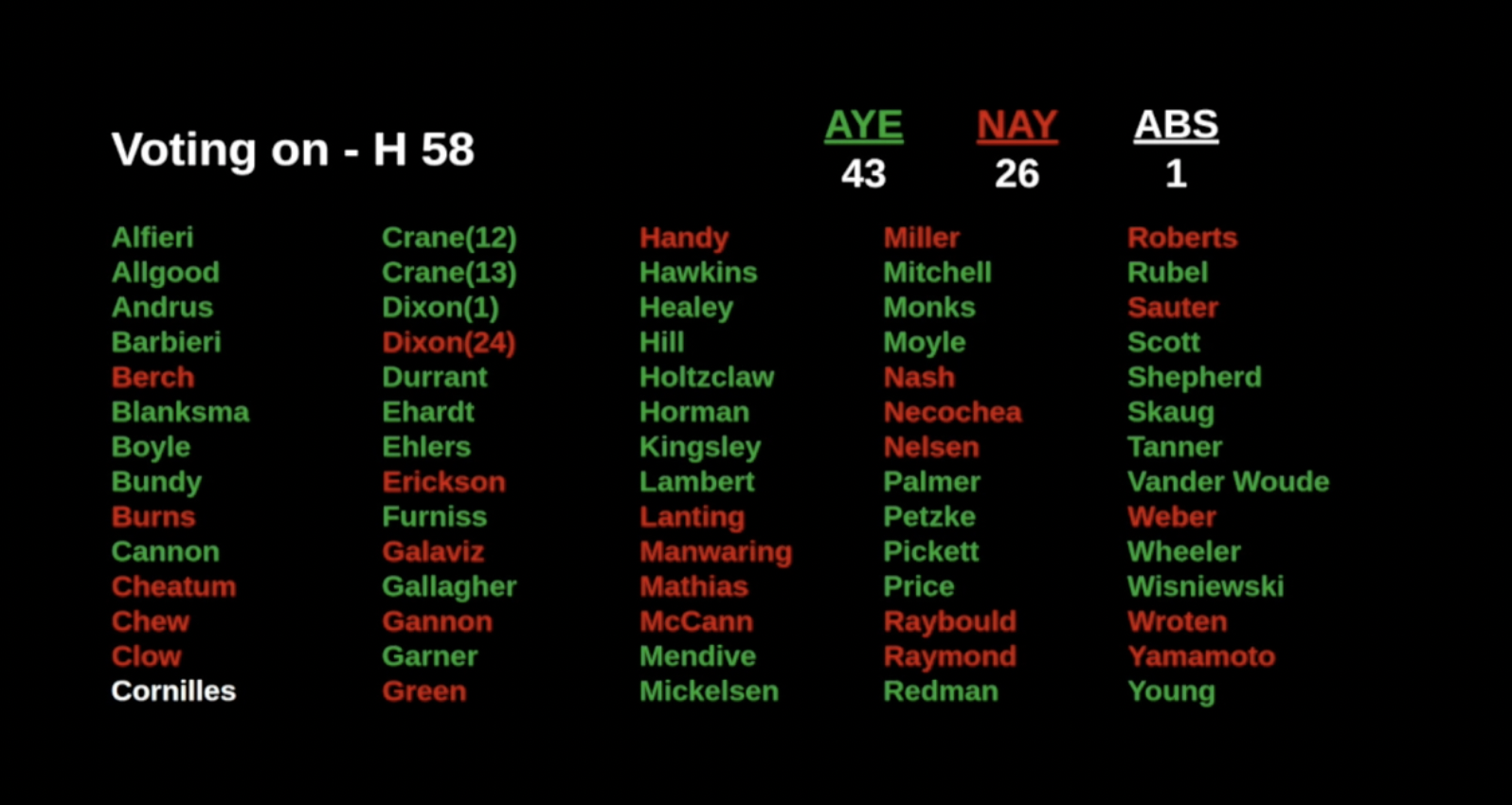A bill to remove the March and August school election dates passed the House on Friday by a comfortable 43-26 margin. The bill is headed to the Senate.
Under House Bill 58 , districts would have to run levy and bond ballot measures in May and November, in conjunction with the primary and general elections.
The bill’s sponsor, Rep. Joe Alfieri, R-Coeur d’Alene, said the bill would improve voter turnout, and save counties over $1 million in election costs. But it would limit districts’ opportunities to pass bonds and levies — their primary funding source for facilities and supplemental needs.

Some districts will float multiple ballot measures in a year, even after they’ve been rejected by voters. And March is by far the most popular election date for supplemental levies, which account for more than $217 million in school spending statewide. In recent years, the March election date has given schools a better chance to pass bond issues, which require a two-thirds supermajority to pass.
“Asking people to vote on things after they’ve already been decided is, frankly, wrong,” Alfieri said.
The bill generated around 30 minutes of debate on the House floor Friday morning. Supporters cited concerns similar to Alfieri’s. But much of the debate centered around how Idaho funds school facilities.
Reps. Heather Scott, R-Blanchard, and Brent Crane, R-Nampa, said they supported the bill because it would take pressure off of taxpayers. Scott said patrons in her district can’t afford the property tax hikes associated with bonds and levies, despite some North Idaho schools still having single-pane windows.
But they both said changes to Idaho’s facilities funding tactics might be in order.
“The bond and levy process is not working,” Crane told the chamber. “Maybe the state of Idaho should start looking at legislation to provide a tool for school funding.”
Critics spanned both sides of the aisle.
Rep. Greg Lanting, R-Twin Falls, said bonds and levies are necessary for districts to act on the $900 million in statewide deferred maintenance needs, and push forward career technical education initiatives, which are a priority for many in the Legislature.
Rep. Lori McCann, R-Lewiston, said she’d be willing to consider a similar bill in the future, but said Idaho’s rural districts need bonds and levies now, until the state can take action on other education funding issues. Rep. Ilana Rubel, D-Boise, sided with McCann.
“Let’s not make it extremely…difficult to pass these bonds and levies until we as a body have risen to the challenge of actually meeting these funding needs ourselves,” Rubel said. (Rubel voted yes in Friday’s roll call, but said on Friday afternoon that she is firmly opposed to the bill.)
Here is the roll call from Friday morning:

House to vote on bill banning student IDs as voter identification
A bill banning the use of student ID cards as voter identification is headed to the House floor.
The House State Affairs Committee’s party-line vote came after several students testified against the bill.
Opponents, including students, said the bill would force voters to obtain costly ID cards to vote — violating the U.S. Constitution’s prohibition of a poll tax. They also said the bill would disenfranchise young voters.
“We are the future of democracy of Idaho,” said Mae Roos, a Borah High School senior. Fielding a series of questions from lawmakers, Roos brandished her student ID — a sophisticated card that unlocks doors into the school, but a free photographic ID available to all students.
Shiva Rajbhandari, a Boise High School senior elected to the Boise School Board in September, challenged the premise that the bill would combat election fraud.
“There’s no widespread voter fraud in Idaho,” he said. “The lie that people are voting fraudulently in Idaho is dangerous.”
The bill’s sponsor said the bill would prevent one form of voter fraud.
“Student ID is insecure,” said Rep. Tina Lambert, R-Caldwell. “We need to make our elections secure.”
Another Caldwell Republican, Rep. Chris Allgood, shared similar concerns, saying student IDs and their safeguards can vary widely from school to school.
Speaking in favor of Lambert’s bill, Secretary of State Phil McGrane said student IDs are seldom used as voter identification. In November, some 600,000 people voted, and only 104 people used a student ID as their identification.
McGrane also noted that a second bill, introduced in House State Affairs Friday, would make available a free voter ID card.
The committee voted for a new, edited version of Lambert’s bill, so no bill number was immediately available Friday morning. The full House could vote on the new bill next week.
Idaho Education News reporter Kevin Richert contributed to this report.
